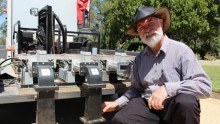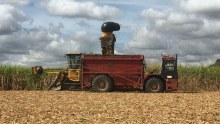Explainer: Queensland's sugar marketing dispute and why it is giving the National Party a headache
Updated
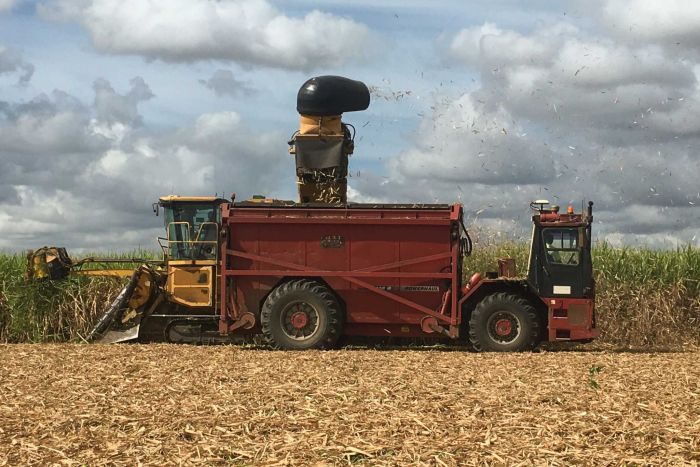 Photo:
Queensland's cane farming industry is at war over how sugar should be sold. (ABC Rural: Marty McCarthy)
Photo:
Queensland's cane farming industry is at war over how sugar should be sold. (ABC Rural: Marty McCarthy)
Cane farmers in Queensland concerned about a payment dispute have rattled the chains so loudly the issue has reached the halls of Parliament House in Canberra.
The sensitive topic is proving difficult for the Liberal-National Party, including for Deputy Prime Minister Barnaby Joyce who needs a good outcome to appease the party's traditional support base.
The dispute, between cane farmers and a Singaporean-owned sugar milling company, has also raised concerns about foreign investment in Australia's agriculture sector.
Who are the main players?
Foreign-owned sugar miller Wilmar and Australian marketing group Queensland Sugar Limited.
Singaporean-based Wilmar is Asia's leading agribusiness group with a revenue of $US41 billion.
It is better known for being the largest integrated palm oil producer in the world.
In 2010 and 2011 Wilmar bought eight sugar mills in north Queensland, which collectively produce more than half of Australia's supply of sugar.
In Australia its sells its sugar under the CSR brand.
Queensland Sugar Limited (QSL), established in 1923, is a not-for-profit public company with an annual revenue of around $1.5 billion.
Traditionally, it has sold most of the raw sugar produced in Australia from the six bulk sugar terminals it operates in Queensland.
Why are they arguing?
Prior to deregulation of the sugar industry in 2006, QSL was the only mechanism to sell raw sugar on to the export market.
QSL provided a centralised marketing option that growers and millers had come to trust to get good prices for them.
That changed when the industry was deregulated and QSL had to enter into voluntary agreements with the mills instead.
However, when Wilmar entered the Australian industry, it threatened that established structure.
In 2014 Wilmar announced plans to sever ties with QSL and instead sell all of the sugar it crushed through its own trading arm.
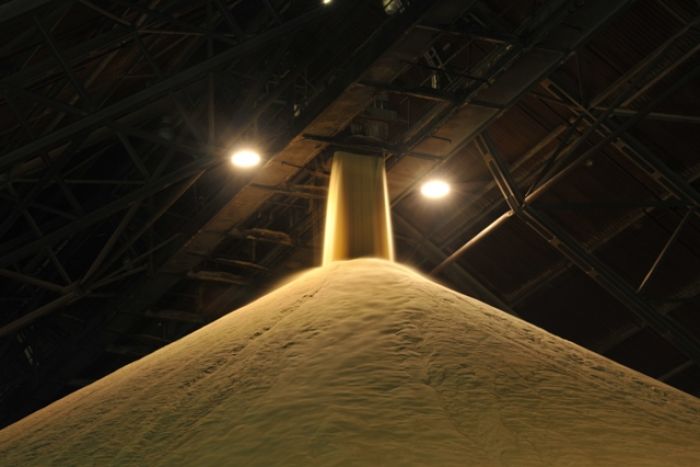 Photo:
The marketing of Australia's multi-billion dollar export sugar pool remains uncertain (Supplied by Queensland Sugar Limited)
Photo:
The marketing of Australia's multi-billion dollar export sugar pool remains uncertain (Supplied by Queensland Sugar Limited)
Wilmar's decision to do its own selling angered many growers who feared they would get paid less for their cane and were concerned there would be less transparency.
In 2015, the Queensland Parliament intervened, introducing legislation that would enable growers to choose who they wanted to sell their sugar — Wilmar or QSL.
Critics argued it jeopardised the billions of dollars being invested by foreign companies in Australia's sugar industry.
That was 2015. Why are they still arguing?
Wilmar is not the only sugar miller in Queensland — there are six others.
Since the laws were passed, the other companies have all signed supply agreements with QSL, except Wilmar.
It is complicated, but Wilmar and QSL are arguing over the finer details set out in the new legislation.
For the growers to get a choice, they first need a cane supply agreement with their mill.
They then need their mill to agree on how that sugar will be sold to the alternative marketer (QSL) if that is what the grower chooses.
Why are growers frustrated?
Without a cane supply agreement between the growers and their local mill, the cane cannot be crushed for the upcoming season.
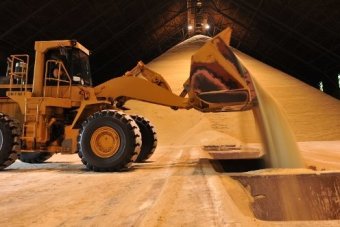 Photo:
When Wilmar entered the Australian sugar industry it threatened that established structure. (Supplied: Queensland Sugar Limited)
Photo:
When Wilmar entered the Australian sugar industry it threatened that established structure. (Supplied: Queensland Sugar Limited)
It could mean up to $1 billion worth of cane (and subsequently sugar) is in limbo for both growers and Wilmar.
Without a cane supply agreement, growers are also unable to forward price their future sugar production, which allows them to lock in high prices — a bit like fixing a good interest rate on a home loan.
Growers also say there is already a huge pricing difference offered by Wilmar compared to Queensland Sugar Limited.
Wilmar's own documents show that it is paying $104 less than QSL, a big margin considering QSL is paying $580 a tonne.
Who has the power to resolve the issue?
The deadline for QSL and Wilmar to resolve this dispute is Monday, otherwise the politicians step in.
There are calls for the dispute to be forced into arbitration so that an independent arbitrator can decide.
The Liberal-National Party in Queensland is introducing legislation on Tuesday for this to happen.
Why is it a headache for the Federal Government and the National Party?
That is where this gets interesting.
The Federal Member for Dawson is the LNP's George Christensen. This issue affects cane farmers in his electorate.
He reportedly wrote a "letter of demand" to the Prime Minister and contemplated resigning, citing Federal Government inaction over this issue.
The Turnbull Government needs the support of Mr Christensen, due to the single seat majority it holds in the House of Representatives.
While the Turnbull Government would still have enough seats to hold government, without the support of Mr Christensen and other crossbenchers, Labor could block Government bills.
However, in the days after these reports emerged, Mr Christensen said he was loyal to the National Party and denied threatening to quit.
After this, Deputy Prime Minister and National Party Leader Barnaby Joyce travelled to north Queensland to allay the concerns of Mr Christensen and cane farmers.
Mr Joyce urged QSL and Wilmar to resolve the issue, or risk government intervention.
"If you don't want the clumsy fingers of government all through your business, get to work and resolve it," Mr Joyce said at a meeting of angry growers.
The National Party has a stranglehold on so called 'sugar seats' in Queensland, and a failure to get a good outcome for growers puts those seats at risk.
With the rising threat of One Nation, National Party MPs are nervously trying to fend off an outcome that could upset their traditional support base.
Why does this debate matter?
At the core of this argument is growers wanting control of their destiny in a deregulated environment.
Growers argue they have no choice in who crushes their cane, but they want a say in who markets the sugar they have an economic interest in.
It is also a debate over foreign investment.
Wilmar is one of the most powerful commodity traders in the world, and has made a significant investment in Australia's agriculture sector.
Future investors may be deterred if the Queensland Parliament and Federal Government show a willingness to resolve such disputes through added regulations.
What is the easy fix?
The easiest solution is for QSL and Wilmar to come to an agreement to enable canefarmers to decide who sells their sugar.
The cane industry wants legislation amended so arbitration can happen sooner, if a similar problem arises in future.
There are also calls for a compulsory national Code of Conduct for the sugar industry.
Topics: sugar, agricultural-crops, rural, agricultural-prices, agribusiness, brisbane-4000, canberra-2600
First posted






